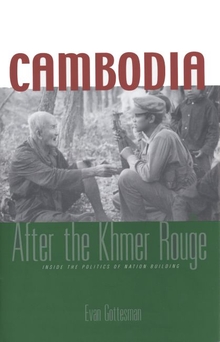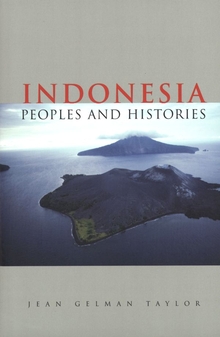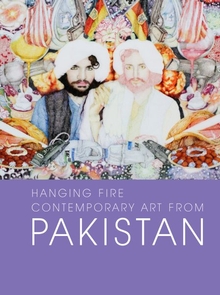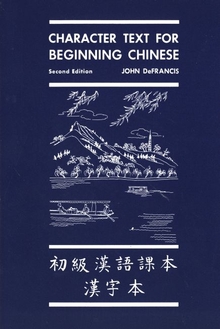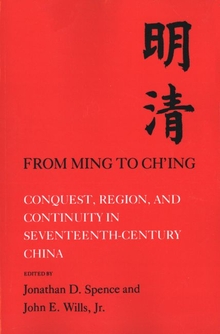Cambodia After the Khmer Rouge
WARNING
You are viewing an older version of the Yalebooks website. Please visit out new website with more updated information and a better user experience: https://www.yalebooks.com
Inside the Politics of Nation Building
Evan Gottesman
Out of Print
This book tells of the events and personalities that shaped Cambodian history during the thirteen-year period between the overthrow of the Khmer Rouge regime in 1979 and the signing of the 1991 peace accords that resulted in U.N.-administered elections. The first study of this turbulent era, it offers a nuanced understanding of complex questions concerning human rights, economic reconstruction, institutional development, and national sovereignty, issues that were framed by the legacy of the Khmer Rouge and by a Vietnamese occupation.
Drawing on a range of previously unexplored sources, including more than 1,300 internal government and party documents, Evan Gottesman describes how a handful of former Khmer Rouge soldiers and officials, Vietnamese-trained revolutionary cadres, and surviving intellectuals fought over power and policy. Gottesman discusses the regime’s approach toward the Khmer Rouge, the relationship between the Cambodians and the Vietnamese, the treatment of the ethnic Chinese, and the tension between patronage politics and communist ideology. He tracks the careers of Cambodian leaders and their roles in determining the direction of the country and describes how Hun Sen, the current prime minister, rose to power in the 1980s. Gottesman concludes by explaining how the legacy of this period has influenced events in Cambodia to the present time.
Drawing on a range of previously unexplored sources, including more than 1,300 internal government and party documents, Evan Gottesman describes how a handful of former Khmer Rouge soldiers and officials, Vietnamese-trained revolutionary cadres, and surviving intellectuals fought over power and policy. Gottesman discusses the regime’s approach toward the Khmer Rouge, the relationship between the Cambodians and the Vietnamese, the treatment of the ethnic Chinese, and the tension between patronage politics and communist ideology. He tracks the careers of Cambodian leaders and their roles in determining the direction of the country and describes how Hun Sen, the current prime minister, rose to power in the 1980s. Gottesman concludes by explaining how the legacy of this period has influenced events in Cambodia to the present time.
Evan Gottesman spent three years in Cambodia, where he served as resident liaison and deputy director of the American Bar Association Cambodia Law and Democracy Project.
"Evan Gottesman’s masterful, fair-minded study lifts a curtain onto a secretive, enigmatic regime and deepens our understanding of a crucial decade of Cambodian history, as well as of Cambodian politics ever since. Drawing on previously unexploited archival sources, interviews, and secondary materials, Gottesman draws a subtle, often unnerving picture of an impoverished Marxist-Leninist dictatorship seeking an identity of its own in the context of an ongoing civil war and an often smothering alliance with Vietnam."—David Chandler, author of The Tragedy of Cambodian History: Politics, War and Revolution since 1945
“Gottesman’s study is a worthwhile and useful step in redressing this imbalance, giving an in-depth look at the reconstruction of a traumatized country. . . . A clear, even-handed study. . . . Useful and compelling.”—Matthew Edwards, Asian Affairs
“Evan Gottesman’s absorbing book is the first analytical study of the Peoples’ Republic of Kampuchea. . . . [This] is a first-rate book that has ably filled an important gap in Cambodian historiography. Gottesman’s study is persuasively argued, nicely organized and appealingly written.”—David Chandler, Pacific Affairs
"The most recent book on the Cambodian tragedy makes an important claim: that the Vietnamese occupation was essentially doomed because of events inside the country, and not very much because of the outside allegiance ranged against it. It is an extreme view, but Evan Gottesman does his best to back it up with important new research and background gained during a three-year effort to help build post-1978 Cambodia. . . . His book is a wonderful book, the best yet, at the struggles of nation building and the toll it takes, until one man finally emerges from the contenders. . . . In light of January’s riots, encouraged and spurred on by certain Cambodian politicians, this account of how Hun Sen got to the top on little but sheer will and ruthlessness is timely."—Alan Dawson, Bangkok Post
"A painstaking look, both sober and sobering, at the slow rebuilding process and the old hatreds that impede it."—George Fetherling, Vancouver Sun
“Drawing on new archival sources and interviews, Mr. Gottesman fills a gap, describing a shadowy period in Cambodia’s recent history, a period as crucial as the more thoroughly explored Khmer Rouge interregnum.”—Michael J. Ybarra, Wall Street Journal
“Evan Gottesman’s timely new book . . . is a clear-eyed and nuanced account of multilayered backroom efforts to rebuild Cambodia after it overthrew the Khmer Rouge in 1979. The lessons for the United States in Iraq are many. Gottesman’s work fills a vast gap in scholarship on Cambodia. . . . Washington should take note: this book is a sober and valuable warning of how difficult that struggle can be.”—Eric Pape, Newsweek
"Gottesman outlines brilliantly how much the legacy of the ’People’s Republic of Kampuchea,’ as Cambodia was then titled, has influenced events there--and, especially, how Hun Sen, the current prime minister, rose to power. . . . [Gottesman] makes it easier to understand why Cambodia is in such a confused state today."—Bertil Lintner, Far Eastern Economic Review
“Gottesman’s forensic account of how ham-fisted nation-building by an unwelcome army of occupation failed . . . is a timely and cautionary tale.”—Kevin Davey, The London Tribune
"Gottesman’s forensic account of how ham-fisted nation-building by an unwelcome army of occupation failed, together with the shortcomings of the UN, is a timely and cautionary tale."—Kevin Davey, Tribune
“Anecdotal accounts enliven this scholarly history of the years between the end of Khmer Rouge rule and the United Nations-organized elections in May 1993. . . . Gottesman came across hundreds of documents that provided a glimpse of how a small group of Khmer Rouge defectors . . . grafted their way back from the vortex to found today’s ambiguous status quo.”—Christopher Kremmer, Sydney Morning Herald
“Cambodia After the Khmer Rouge ranks as a must-read book on Cambodia.”—A. Gaffar Peang-Meth, Perspectives on Political Science
Selected as an Outstanding Academic Title for 2003 by Choice Magazine
ISBN: 9780300089578
Publication Date: December 11, 2002
Publication Date: December 11, 2002
464 pages, 6 1/8 x 9 1/4
24 b/w illus. + 1 map
24 b/w illus. + 1 map

